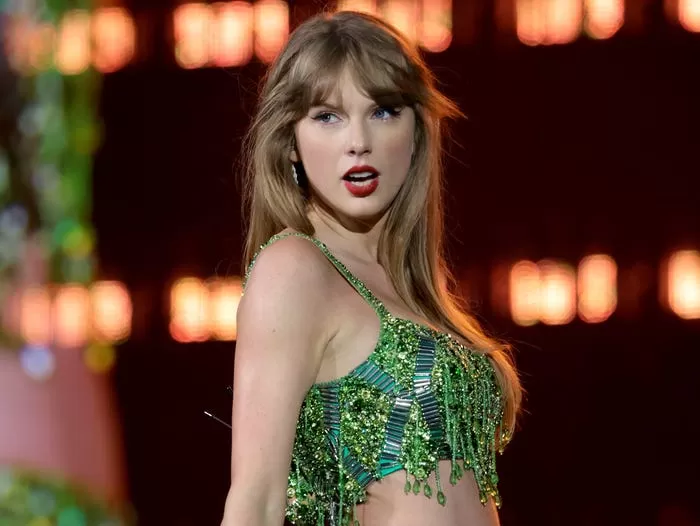In a shocking and unprecedented move, Country Music Television (CMT) has officially banned Taylor Swift from its network for life. This drastic decision, which has set the music world abuzz, comes as part of CMT’s bold stance against what it describes as “woke music.” The move has sparked fierce debate, with some praising the network for its commitment to traditional country values, while others accuse CMT of censorship and political overreach.

The ban, announced through a formal statement on the CMT website, outlines the network’s belief that Swift’s music no longer aligns with the core principles of country music, which they argue should focus on universal themes of traditionalism and simplicity. “We believe in the power of music to unite and reflect the values that have shaped this genre,” reads the statement. “Taylor Swift’s recent body of work has veered too far from this vision, aligning more with progressive, ‘woke’ narratives that do not resonate with the heart of country music.”
The term “woke music” has become increasingly controversial in recent years, often used to criticize music that addresses social justice issues, LGBTQ+ rights, racial equality, and other progressive causes. CMT’s declaration marks an escalation in the ongoing culture wars that have engulfed the entertainment industry, especially in country music, which has long been seen as a bastion of conservative ideals.

Taylor Swift, who began her career as a country music star, has undergone a significant evolution in her sound and political activism over the past decade. Since transitioning into pop music with her 2014 album 1989, Swift has become an outspoken advocate for progressive causes. She has publicly endorsed candidates, spoken out against systemic racism, and advocated for LGBTQ+ rights. Her activism reache new heights with the release of her 2020 album Folklore, which was widely seen as a commentary on social issues, such as mental health struggles, inequality, and climate change.
In recent years, Swift has used her platform to challenge entrenched political norms, particularly in the American South, where country music has deep roots. She has also been an advocate for women’s rights and gender equality, making her a polarizing figure in a genre often associated with traditional values.
While some fans have hailed Swift’s political engagement, others have criticized her for being out of touch with the country music community. Critics argue that Swift’s increasingly “woke” image has alienated her from her country music origins, and some have accused her of abandoning the authenticity and simplicity that characterized her early work.
CMT’s move to ban Swift is the latest chapter in the growing divide between conservative and progressive factions within the country music industry. Many traditional country artists, such as Hank Williams Jr. and Travis Tritt, have also been vocal in their opposition to what they see as the “politicization” of music. These artists argue that country music should remain a celebration of Americana and avoid becoming a platform for political agendas.

On the other hand, Swift’s supporters argue that her success and platform as a female artist in a male-dominated industry should be celebrated, not censored. They believe that her music provides a vital voice for young people who want to see more inclusivity and progressive ideas reflected in mainstream entertainment.
The decision to ban Taylor Swift is likely to have wide-reaching consequences, not just for CMT but for the broader music industry. In an era where artists increasingly use their platforms to speak out on social and political issues, CMT’s decision to take such a firm stand may inspire other networks and outlets to either follow suit or double down on their own policies.
Whether or not the ban will have any lasting effect on Swift’s career remains to be seen. With a global fanbase and a reputation as one of the world’s most successful and influential musicians, Swift is likely to continue to thrive outside of CMT’s influence. However, CMT’s bold stance against “woke music” signals that the battle for the soul of the music industry is far from over. As the divide between conservative and progressive factions continues to deepen, the question of where music fits into the broader political landscape has never seemed more urgent.





